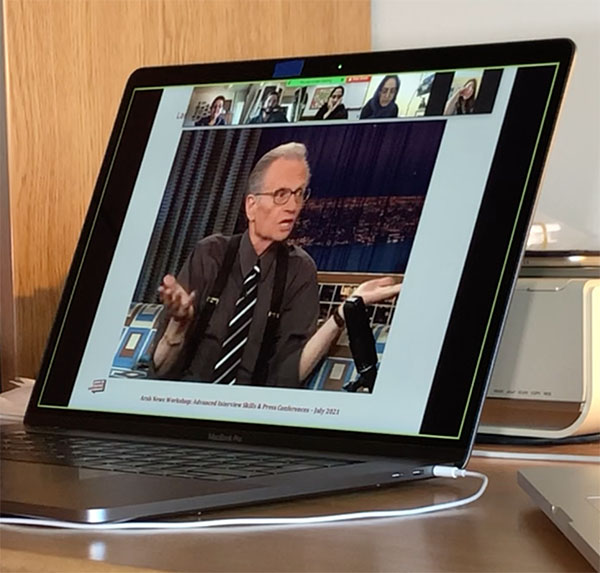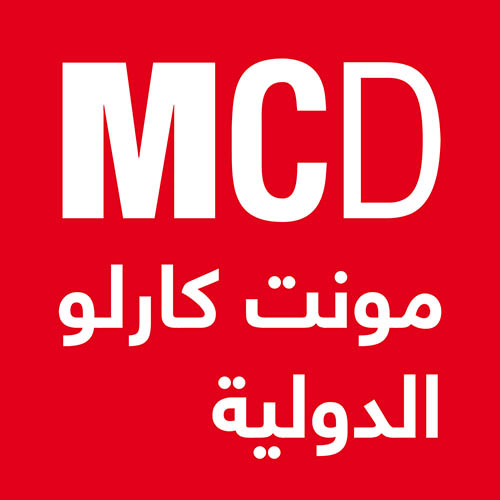Media Unlimited director Magda Abu-Fadil coached Arab News journalists in the intricacies of interviews and news conferences with an emphasis on good preparation, types of questions to ask, handling difficult interviewees and sources’ credibility.

Journalists learn advanced interview skills and coverage of news conferences
The virtual workshop in July 2021 began with an impromptu mock interview scenario requiring the trainees to prepare questions for the trainer, take notes, write a news item based on the interview, prepare hashtags for social media, shoot pictures and write captions. The assignment was edited in a later session.

Editing interview news item
Abu-Fadil focused on research, provided multiple case studies of good and bad interviews, logistical matters in preparation for interviews and press conferences, how to select interviewees, media ethics and legalities, and the uses of quotations.

Video of late talk show host Larry King explaining success of good interviews is listening
Other elements included accurate attribution, ground rules, anonymous sources, virtual vs in-person interviews and press conferences as well as steps to follow before, during and after such conferences.

